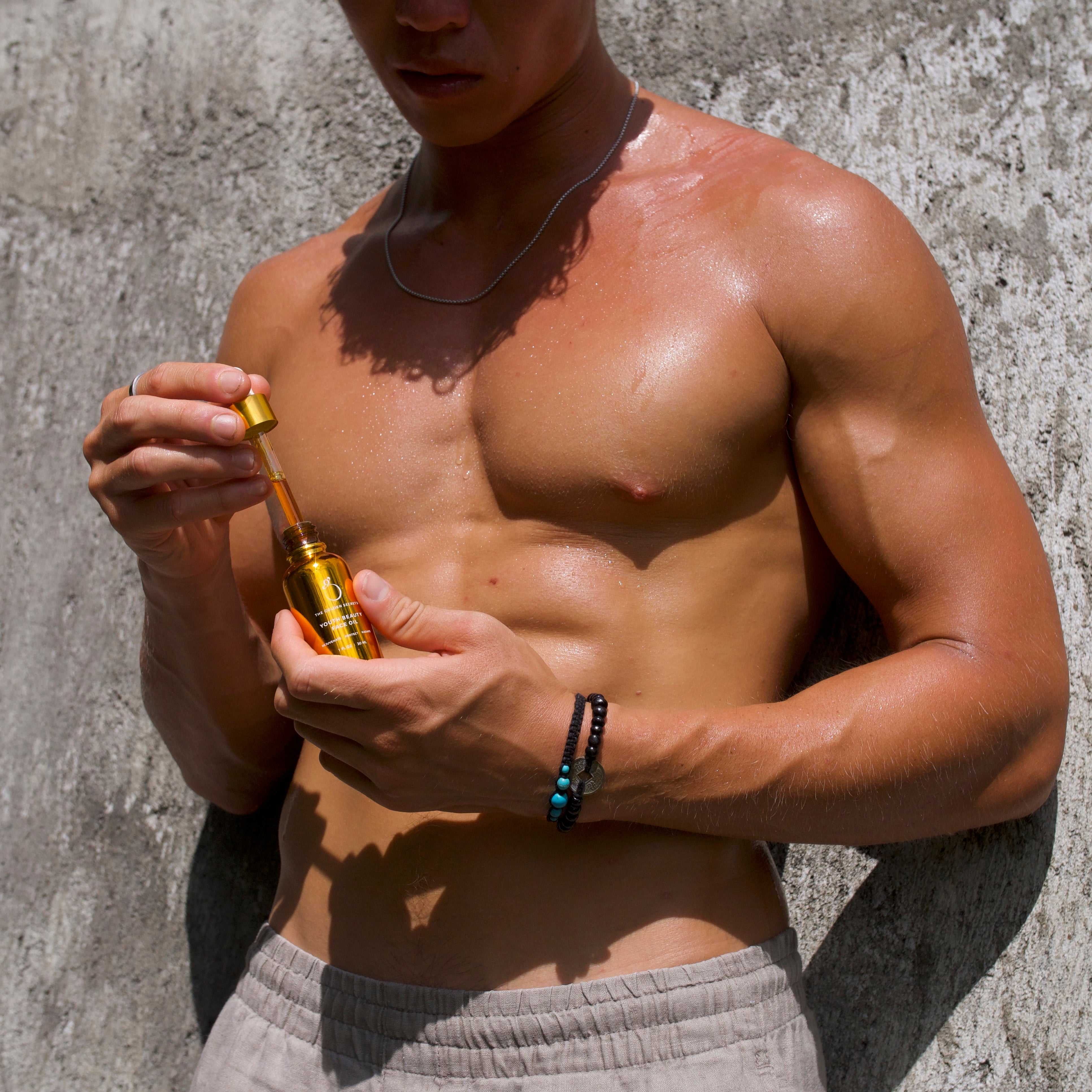Retinol is one of the most talked-about ingredients in skincare—celebrated for its anti-aging benefits, yet often criticized for its harsh side effects. As a holistic skincare practitioner and founder of a clean beauty brand, I believe in understanding what you’re putting on your skin, especially during sensitive times like pregnancy, breastfeeding, or healing postpartum.
In this post, I’ll break down the different forms of retinol, including retinal (retinaldehyde), explore which versions may be toxic, and explain why rosehip, sea buckthorn, and carrot seed oil—all found in our Youth Beauty Face Oil—offer effective, natural alternatives without the downside.
What Is Retinol—and What Are Its Variants?
Retinol is a synthetic derivative of vitamin A commonly used in skincare to:
- Stimulate collagen production
- Increase cell turnover
- Reduce fine lines and wrinkles
- Brighten skin tone
Retinoids come in various forms, including:
- Retinyl Palmitate and Retinyl Acetate (milder but require multiple conversions in the skin)
- Retinol (more potent and widely used in over-the-counter products)
- Retinal/Retinaldehyde (stronger and one step away from tretinoin)
- Tretinoin (prescription-only and the most active)
Is Retinol Toxic? Which Forms Raise Concern?
While retinoids are effective, not all forms are safe for everyone. Here’s what to know:
- Retinyl Palmitate, Retinyl Acetate, and Tretinoin are considered potentially toxic, especially in long-term use or high concentrations.
- These forms may degrade in sunlight, forming free radicals that damage skin cells and DNA.
- The Environmental Working Group (EWG) rates many of these synthetic forms 6–9 on their toxicity scale due to concerns about reproductive harm, irritation, and photosensitivity.
- They are not recommended during pregnancy or breastfeeding due to links to birth defects and hormone disruption.
What About Retinal (Retinaldehyde)?
Retinal is a more potent and bioavailable form of vitamin A than retinol, requiring only one conversion step to become active in the skin. It’s:
- Gentler than Tretinoin, but stronger than retinol
- Less irritating for some skin types
- Often praised for delivering faster results
While it’s generally considered safer than Tretinoin, retinal is still synthetic and should be used with caution—particularly if you’re pregnant, breastfeeding, or sensitive to conventional actives. Unlike whole-plant alternatives, it can still cause dryness, irritation, or sun sensitivity in some users.
Nature’s Retinol: Safer, Gentle Alternatives
If you’re looking for the benefits of vitamin A without the irritation, health risks, or sun-sensitivity, there are powerful plant-based options—all of which are featured in our Youth Beauty Face Oil:
1. Rosehip Oil
Rich in trans-retinoic acid (a natural vitamin A compound), rosehip oil helps:
- Boost collagen
- Fade dark spots and scars
- Smooth fine lines
- Promote gentle cell turnover
It also contains essential fatty acids that nourish and repair the skin barrier—making it ideal for sensitive or postpartum skin.
2. Sea Buckthorn Oil
A vibrant oil packed with beta-carotene, which the body converts to vitamin A. It:
- Improves elasticity
- Calms inflammation
- Supports skin regeneration
It’s deeply nourishing and gives your skin that natural, radiant glow.
3. Carrot Seed Oil
Also rich in beta-carotene and antioxidants, carrot seed oil:
- Revitalizes tired or damaged skin
- Reduces signs of aging and sun damage
- Supports detoxification and cell renewal
Its earthy aroma adds to the ritualistic experience.
I’ve never used conventional retinols—and I don’t plan to. For nearly 20 years, I’ve relied on Youth Beauty Face Oil, and I credit it entirely for how my skin looks today. It is Think Dirty Verified & Awarded for Best Face Oil.
It offers everything people hope to get from retinoids—firmer skin, improved tone and texture, softened lines—but without the irritation, toxicity, or sun sensitivity that can do more harm than good.
This powerful blend of nutrient-dense oils supports healthy cell turnover, enhances elasticity, and visibly smooths fine lines—naturally and holistically.
Retinol and retinal may work for some, but they’re not the only path to radiant skin. For many, they come with side effects that simply aren’t worth it. If you’re looking for a clean, safe alternative that helps you glow now and age gracefully, Youth Beauty Face Oil is your answer.
From the first drop, your skin drinks it in—glowing, softened, and calm. And with consistent use, it just keeps getting better, like time in reverse.
Let your skincare be something that nourishes, not compromises. Nature already gave us everything we need—we just bottled it.




























